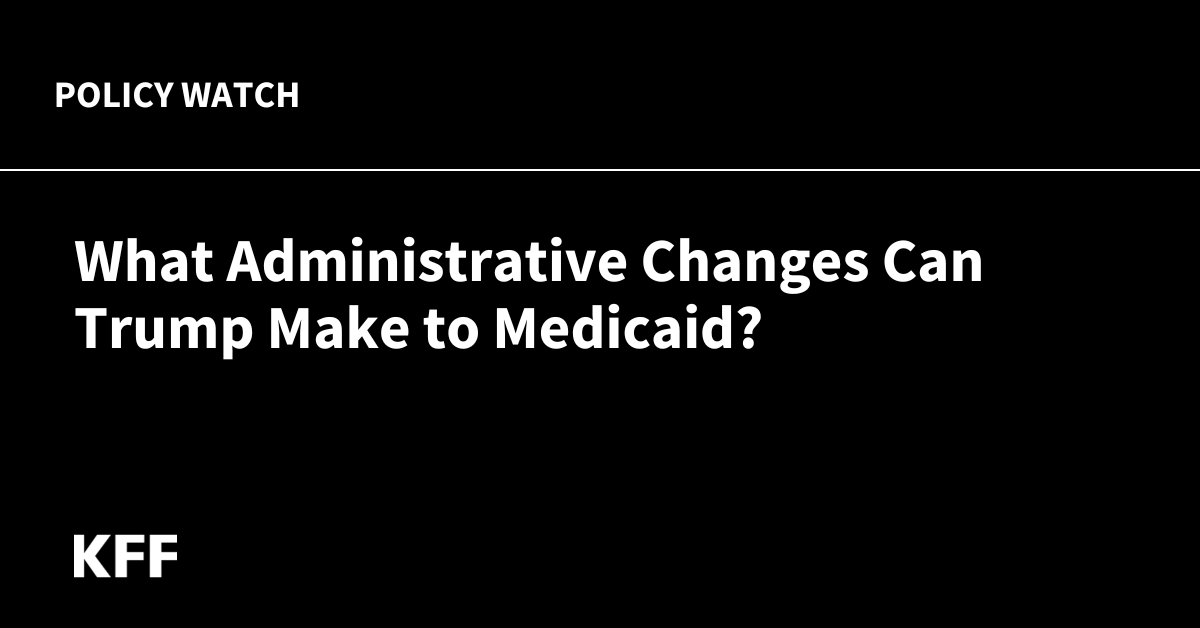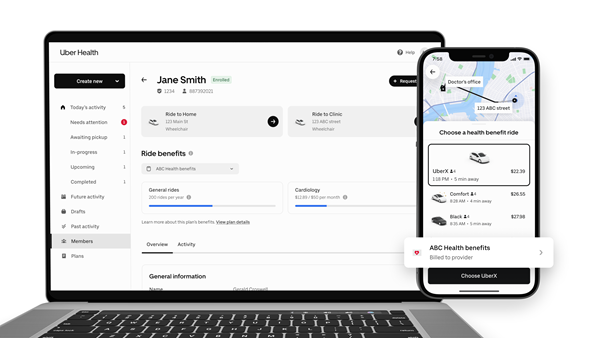With Donald Trump returning to the presidency, the future of Medicaid is uncertain. While Medicaid did not receive a lot of attention directly during the campaign, Trump’s first term can shed light on potential changes that could be implemented administratively without Congress.
1. Trump administration could encourage and approve Medicaid waivers to advance priorities, including work requirements.
The previous Trump administration’s Section 1115 waiver policy emphasized work requirements, other eligibility restrictions, and capped financing. The Trump administration approved 13 waivers that allowed states to condition Medicaid eligibility on meeting work and reporting requirements and also approved waivers that restricted eligibility, including by permitting states to charge premiums and lock out enrollees who are disenrolled for unpaid premiums. Although previous work requirements in Medicaid were challenged in court and the waivers imposing work requirements were rescinded by the Biden administration, a number of states continue to be interested in adopting them. Although CMS withdrew work and premium requirements in Georgia’s “Pathways” waiver, these provisions remain in place after a federal judge vacated the CMS rescission.
Trump also introduced a demonstration opportunity, the “Healthy Adult Opportunity” (HAO), that would have allowed states “extensive flexibility” to use Medicaid funds to cover certain adults – including those who qualify under the Affordable Care Act’s expansion — without being bound by federal standards related to eligibility, benefits, delivery systems, and oversight in exchange for annual limits on federal financing. While no state took up this option during the first administration, these waivers restructure Medicaid financing in ways similar to block grant and per capita cap proposals and promoting the waivers in a second administration would enable Trump to advance that policy even in the absence of Congressional action. However, unlike legislative proposals that would alter Medicaid financing and significantly cut federal spending, it is unlikely that states would opt for such deals if federal financing would be cut significantly.
The new Trump administration’s waiver priorities will differ significantly from those of the Biden administration and it is unclear how the Trump administration will treat certain waivers promoted and approved by the Biden administration, such as those focused on addressing health-related social needs, multi-year continuous eligibility, and leveraging Medicaid to help individuals leaving incarceration transition to the community. The Trump administration could choose not to approve waivers that remain pending, rescind existing waiver guidance, or withdraw approved waivers, although some of these waivers, particularly ones using Medicaid to assist with reentry from incarceration, have been pursued by both Republican and Democratic governors.
2. Trump administration could choose not to implement or rewrite recent regulations.
The Biden administration finalized a number of major Medicaid regulations designed to promote quality of care and advance access to care for Medicaid enrollees as well as to streamline eligibility and enrollment processes in Medicaid and the Children’s Health Insurance Program (CHIP).
- The Access rule addresses several dimensions of access: increasing provider rate transparency and accountability, standardizing data and monitoring, and creating opportunities for states to promote active enrollee engagement in their Medicaid programs. The rule also included many provisions governing access to home care (also known as home- and community-based services or HCBS), which include ensuring that at least 80% of spending on certain services be spent on compensation for direct care workers and requiring states to report the number of people on waiting lists for care.
- The Managed Care rule addresses Medicaid managed care access, financing, and quality, including strengthening standards for timely access to care and states’ monitoring and enforcement efforts.
- The Long-Term Care Facility (LTC) Staffing rule requires minimum staffing standards for nursing facilities.
- Two rules streamline Medicaid enrollment and renewal processes for the Medicare Savings Program (MSP) and for Medicaid, CHIP and the Basic Health Program. The first rule helps eligible Medicare beneficiaries more easily access Medicaid coverage of Medicare premiums and cost sharing through the MSP while the second rule simplifies application, enrollment, and renewal processes and removes access barriers for children in CHIP. Each rule is expected to increase Medicaid enrollment by about one million people.
These rules are complex and are set to be implemented over several years. The Trump administration could delay implementation of certain provisions, which would reduce regulation of managed care companies, nursing facilities, and other providers, while rolling back enrollee protections, payment transparency, and improved access. Alternatively, the Trump administration could issue new regulations that would undo these final regulations.
3. Trump administration could issue guidance and implement policy to make it more difficult for people to obtain and maintain coverage, reducing enrollment and spending.
The Trump administration could also issue sub-regulatory guidance to change eligibility or renewal policies to restrict coverage by tightening verification of eligibility. Previously, the Trump administration sought to reduce Medicaid enrollment by encouraging states to conduct eligibility verification processes in between annual renewal periods. While some states conduct these periodic data checks, the administration could encourage more states to adopt the policy as a program integrity strategy. The Trump administration could also eliminate flexibilities granted under the Biden administration that allow states to streamline renewal procedures. Getting rid of these flexibilities would likely make it harder for some enrollees to renew their Medicaid coverage, while providing greater certainty that people who are ineligible do not obtain coverage.
Beyond waivers, regulations, and enrollment policy, if the Republicans gain control of both the House and the Senate, Trump could work with Congress to enact legislation that would more fundamentally change the financing structure of Medicaid and make significant cuts to federal Medicaid spending, similar to policies Trump has supported in the past.
Publisher: Source link










